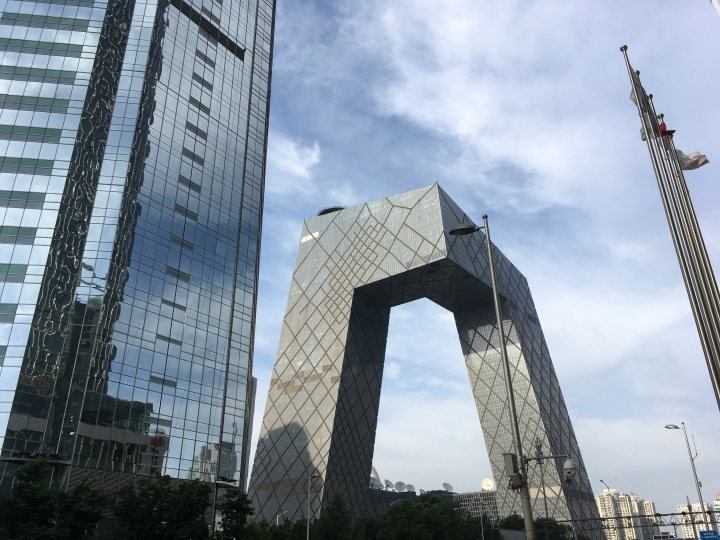
In the next decade, the biggest startup technology companies will come from…
— CB Insights (@CBinsights) May 29, 2018
This vote, conducted by @CBInsights which has a subscriber base of 400k+ all across the world, is a clear sign showing that no one thinks of tech from China as copycats anymore. Over the past decade, China has advanced immensely in AI. If you read any studies about computer vision nowadays, you’ll realise a lot of them quoted Chinese professors since 2014, namely Dr. Xu Li. Dr. Xu Li is also the founder of Sensetime, a tech unicorn specialises in facial recognition based in Hong Kong with a USD4.5 billion valuation.
So, where are all the tech coming from? Is there a Chinese Silicon Valley? Having worked directly with China startups and also traveled frequently to China for work in the last 9 months, I can share my experience and impression with you here. Although my main encounters are mostly in Beijing, therefore I can elaborate more only for this city 😛
Beijing
Beijing is the leading tech cluster in China for obvious reasons: Tsing Hua University and tech giants headquarters. Inside of Haidian district in Beijing, we can find Zhongguancun Technology Hub, which is basically occupied mostly by Tsing Hua University’s TusPark, tech companies and research faculties.
Apart producing some of the world’s best startup companies, Tuspark also works closely with governments of other countries to foster cross-border innovation. Dotforge from the UK is a good example, back in March, Dotforge organised a series of demo days and workshops for UK startup companies in China in collaboration with TusPark.
Some international accelerators choose to even base near Tuspark, such as US-based Plug and Play, which collaborates with corporates in China in order to find the best international or Chinese tech solutions to help solve business problems. Plug and Play is present in other China cities such as Shanghai, Hangzhou, Xi’an etc.
In addition to high growth startup companies, you will find tech giants in Zhongguancun area too. Didi Chuxing, China’s biggest on-demand ride-sharing company, has its headquarters right there. Didi Chuxing is rapidly expanding and its ambitious to go beyond purely ride-sharing is very interesting. I highly recommend anyone interested in learning more about Didi to read this WIRED article.
Not far from Zhongguancun is Shangdi 10th Street, where Baidu Campus is. Baidu being one of the biggest search engines in China, has such an advantage when it comes to researching and developing new tech solutions such as autonomous driving.
Lastly, the second biggest ecommerce giant JD.com is also based in Beijing, although it is far away from Zhongguancun. JD.com is basically the Amazon of China, like Alibaba, it is investing very heavily on robotics and drones in order to shorten delivery speed.
Hangzhou
With Alibaba’s headquarters in Hangzhou, the city is not lack of tech talents. Many programmers, AI specialists who left Alibaba or Ant Financials will start their own businesses in the cities. And because of their experience in Alibaba, the tech companies coming out of Hangzhou are usually really strong. Additionally, Hangzhou is a rising hub in blockchain technology, the government recently made an announcement in April on opening a blockchain industrial park, investing USD1.6 billion into a blockchain fund. This article summarises Hangzhou pretty well as a tech hub.
Shenzhen
Shenzhen has undergone drastic development in the past decade, the city is now full of modern skyscrapers, big shopping malls and very nice recreational areas. Now, Shenzhen has risen to become a tech hub with headquarters of Tencent, ZTE, and Huawei for a reason. It is one of the first Special Economic Zones in China, therefore since the 1980s, it has been attracting a lot of investors into the cities. Until now, even though Shenzhen is already too expensive for small startup companies, it is still very well-known for being the centre of hardware manufacturers. Famous international hardware accelerators such as HAX are based in Shenzhen because of this.
After the three big major tech hubs in China, where else is tech happening?
There is Shanghai, where fintech startups choose to locate because of its proximity to major financial institutions. Many big conferences will choose Shanghai as the destination because of its accessibility, MWC is a good example. Next, Guangzhou is a big tech hub itself because of its proximity to Shenzhen and Hong Kong. Guangzhou prices are cheaper than Shenzhen for a bit and it does not lack the infrastructure and support system for any startups to thrive. Chendu and Qingdao are both Hi-tech Development Zones, however, it seems like Chengdu is more developed than Qingdao as shown in the city’s economic development plan to product at least seven unicorns by 2022. Lastly, Xi’an has potentials to catch up with the other cities to become a major tech hub although it seems like there is still some way to go.
Are you a startup company looking to expanding to China? Message me to find out more, I am happy to share my personal experience with you. 🙂